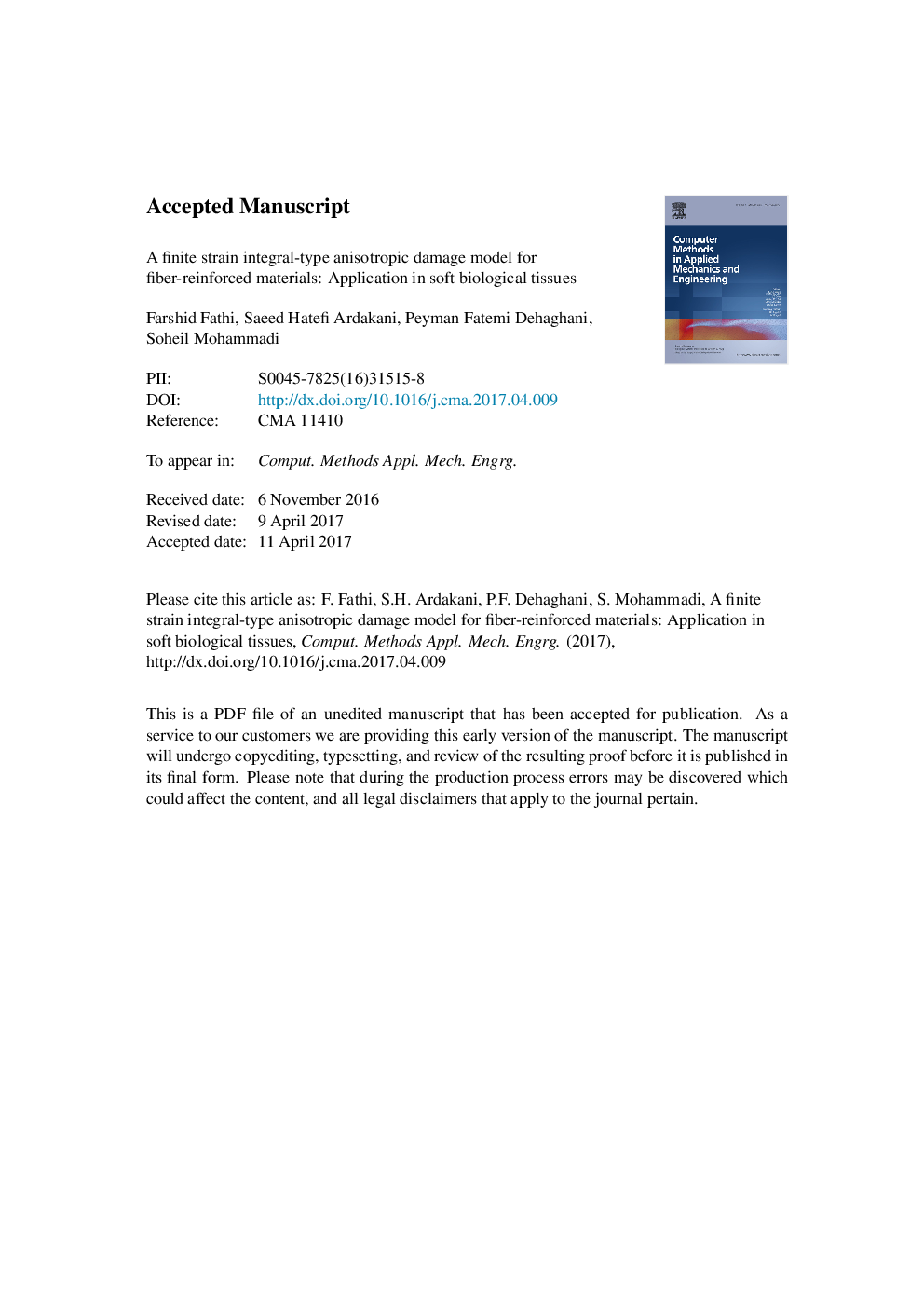| Article ID | Journal | Published Year | Pages | File Type |
|---|---|---|---|---|
| 4963738 | Computer Methods in Applied Mechanics and Engineering | 2017 | 53 Pages |
Abstract
A large deformation finite element method is adopted to study anisotropic damage behavior of geometrically nonlinear problems with specific application in soft biological tissues. Mesh dependency, a general drawback of local damage models, is circumvented using an integral type nonlocal damage model. Three different algorithms for updating the integration search zone and the distance between the Gaussian Points are investigated to demonstrate the best solution for a large deformation based integral approach. Since there exists no record for the effect of the characteristic length of the soft biological tissues, which plays an important role in an integral type nonlocal method, this effect is also investigated. Moreover, the anisotropic highly nonlinear mechanical response of the soft fiber-reinforced tissue is captured by an exponential type strain energy function, combined with the Neo-Hookean type function, to account for distributed collagen fibers and the surrounding ground matrix. In addition, soft tissues are considered to be incompressible materials; hence, a nearly incompressible numerical model is applied to preserve the volume. Several numerical examples are presented to illustrate the accuracy and good agreement with available experimental data. The major role of fibers' orientation during the loading process is also investigated in numerical examples. It is expected to help more accurate analysis of practical cases such as aortic dissection.
Related Topics
Physical Sciences and Engineering
Computer Science
Computer Science Applications
Authors
Farshid Fathi, Saeed Hatefi Ardakani, Peyman Fatemi Dehaghani, Soheil Mohammadi,
